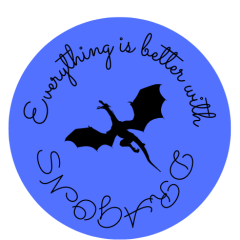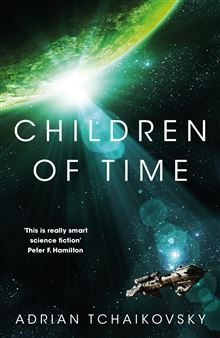Synopsis
They travelled into the unknown and left themselves behind . . .
On the distant world of Kiln lie the ruins of an alien civilization. It’s the greatest discovery in humanity’s spacefaring history – yet who were its builders and where did they go?
Professor Arton Daghdev had always wanted to study alien life up close. Then his wishes become a reality in the worst way. His political activism sees him exiled from Earth to Kiln’s extrasolar labour camp. There, he’s condemned to work under an alien sky until he dies.
Kiln boasts a ravenous, chaotic ecosystem like nothing seen on Earth. The monstrous alien life interacts in surprising, sometimes shocking ways with the human body, so Arton will risk death on a daily basis. However, the camp’s oppressive regime might just kill him first. If Arton can somehow escape both fates, the world of Kiln holds a wondrous, terrible secret. It will redefine life and intelligence as he knows it, and might just set him free . . .
My Review
I ordered a hardback copy of this book from The Broken Binding and the audiobook from Audible. I started reading this book earlier in the week, after I finished reading Lords of Uncreation and decided I need some more SF. I should have been reading one of my blog tour books, but I’ll finish that tomorrow. I happened to need something to listen to on Wednesday because I wanted to go out and swim after I had to spend Tuesday at the hospital. I read the first 23 chapters of the hardback book on Monday, on Wednesday I picked up from the right point in the audiobook and listened to all but the last 23 minutes of it while I was out all afternoon. I listened to the rest when I went out today. So yeah, I binged the book slightly.
I’ve read eight of Tchaikovsky’s books now, six are from space opera trilogies, while two, including Alien Clay, are stand alone novels. I enjoy both types. There’s always strong worldbuilding and interesting characters. Alien Clay is no different, the world of Kiln is very deeply imagined and the main character, Arton Daghdev, is an acerbic bitch; he made me laugh so much.
Kiln puzzles the scientists bound by Mandate orthodoxy; Arton Daghdev and his fellow condemned are heterodox, rebels against the Mandate, or common criminals who happened to end up on Kiln as part of their punishment. Daghdev was an academic, skating the edge of orthodoxy, a xenobiologist, and a member of several revolutionary sub-committees, until purges put him on a ship to Kiln, a one-way trip.
On Kiln, he is welcomed by the very orthodox commandant who hopes Daghdev can be turned to orthodoxy. He’s put on the Science Support team, along with a friend from home, Ilmus, a former colleague and ‘disciple’ who was picked up by the police, tortured and exiled to Kiln a year before Daghdev. The team work with ‘the Science’ – professionals, paid to work on Kiln, to prove the Mandate’s anthropocentric orthodoxy.
Life on Kiln is rampant, even in an apparently cooler, drier period, and it evolves in a vary different way to Earth life. Each creature is a symbiotic community, carrying multiple species in many combinations. But ruins suggest there was once a sentient species on the planet, and it’s the job of the Science (and the prisoners sent to die there) to discover as much as possible and confirm the Mandate orthodox belief that the purpose of the universe is humanity.
After a failed coup, Daghdev, Ilmus and the former head of Science (who had a one night stand with Daghdev and is therefore assumed to have known about the rebellion), among others, are punished by being sent to Excursions. Where they are not popular, because changing the teams means changing the decontamination schedules, risking people’s lives.
Excursions are not a popular assignment, because they are the only people who go outside of the domed camp. Outside the camp, Kiln life tries to take hold immediately. Luckily, life is so different on Earth, that it takes Kiln life a while to work it out and a good decontamination can deal with that. It’s all well and good, until Daghdev’s team, led by an old shop steward, and longest living Kiln survivor, Keev, lose their transport to a creature called ‘the Elephant’s Dad’ and are forced to walk back to the camp.
Out in the Kiln environment, pretty much unprotected from the symbiotic life forms, they change. By the time they return, they are themselves and yet, more than that. Kiln has found the keys to unlock Earth biology. The planet has found a new mind that it can use. Slowly, the survivors spread their change across the rest of the prisoners, until they can work in unity while being still individuals. It’s a new revolution.
Tchaikovsky’s work has always had a political edge, if you know where to look, and he usually has a point to make. The point made in Alien Clay might piss off people who read sci fi because they like it when things get blown up in space and evil empires are replaced by less evil empires. Replacing one with t’other doesn’t work; you need a complete change of system. Replacing the Mandate with a revolution wouldn’t work – revolutions tend to get taken over by people who want power and will lie, murder, and steal to get it. The Russian Revolution is an excellent example of that. The impetus came from grass roots organisations to improve the lives of peasants and workers (the SRs and anarchists), and it was taken over by middle class idealogues who were interested in power – Lenin, Trotsky, and eventually the Bolsheviks under Stalin – and murdered their way through their former allies. Yes, life was probably better than under the Tsars for many people, but it was still shit, because power was still centralised under a ‘big man’ and small group of sycophants. Decentralised, local organisation, directly elected councils that can be recalled and replaced if they piss off the people, a lack of hierarchy, worked in some places for several years at a time, until Stalin and his collection of nut bags decided murder and invasion were better. The Red Army only won the Russian Civil War because of the Anarchist Army (the Red and Black) which voted for their officers. I’ve been listening to Cool People Who Did Cool Stuff, who are part way through a 6-part series on the Kronstadt rebellion, and Behind the Bastards, that’s just done a 4-parter on Stalin’s chief of secret police. Lots of cross-over there. I highly recommend both podcasts, by the way.
Reading Alien Clay when I’ve been listening to Behind the Bastards and Cool People Who Did Cool Stuff probably influenced my interpretation of the message of this book. It appeals to my socialist heart. Authoritarian regimes love a scientist or artist that’ll support their orthodoxy, because they need them to prop up their nonsense, but hates scientists and artists that use their intelligence and skills to point out the lies of the regime.
I love that Adrian Tchaikovsky has included an important, although secondary, character who is non-binary and probably Autistic in Ilmus. They’re the first to join the planet on the march back to the camp, the first to open themselves up completely to the whole. The tension between Daghdev and Ilmus, as they fear each other was the one who turned them in, and betrayed the rebellion at the camp, and the force of their friendship that helps them bridge the tension, is an emotional counterpoint to the humorous narrative of pain and confusion Daghdev feels on Kiln before the changes Kiln makes to them all.
The beings that live on Kiln are absolutely terrifying. I have a really strange phobia of parasites; the idea of things growing on me or taking up residence in me, and sprouting, absolutely terrifies me. That scene in Hannibal series 1 where they find bodies with mushrooms growing out of them, and one of the victims is alive with mushrooms sprouting from them, still horrifies me. So, I can’t say the species on Kiln don’t freak me out, but at the same time, it’s a really cool idea! Instead of the popular science understanding of competitive evolution, there’s a a species that specialises in one thing and will build a communal life with other species so that everyone gets their needs met. I love the way Tchaikovsky has his narrator describe the life on Kiln and events. It’s by turns lyrical, sarcastic and humorous. The stone crab that helps the marching Excursionistas get back to the camp is probably my favourite species.
The narrator of the audiobook was really good; I enjoyed the intonation and rhythm of the narration. At the end of the audiobook, there’s an interview between Adrian Tchaikovsky and Ben Allen, which covers Tchaikovsky’s influences and research. He originally studied zoology and then law, so Tchaikovsky has a background in science, among other areas; when he’s making up xenospecies it’s usually based in proper science. Which I appreciate.
I need to go to bed now, so I’m going to stop rambling and tell you to go buy Alien Clay.






